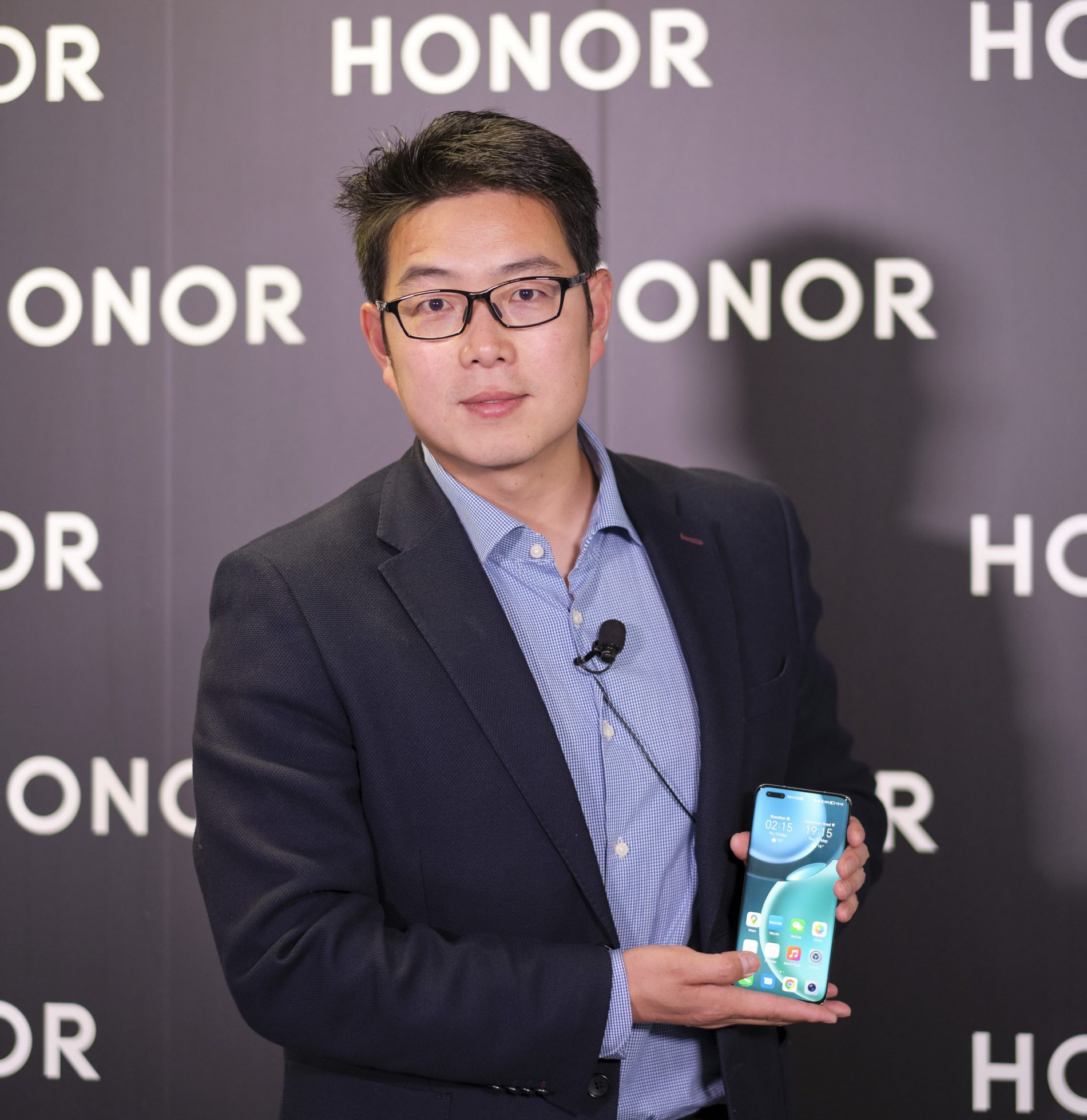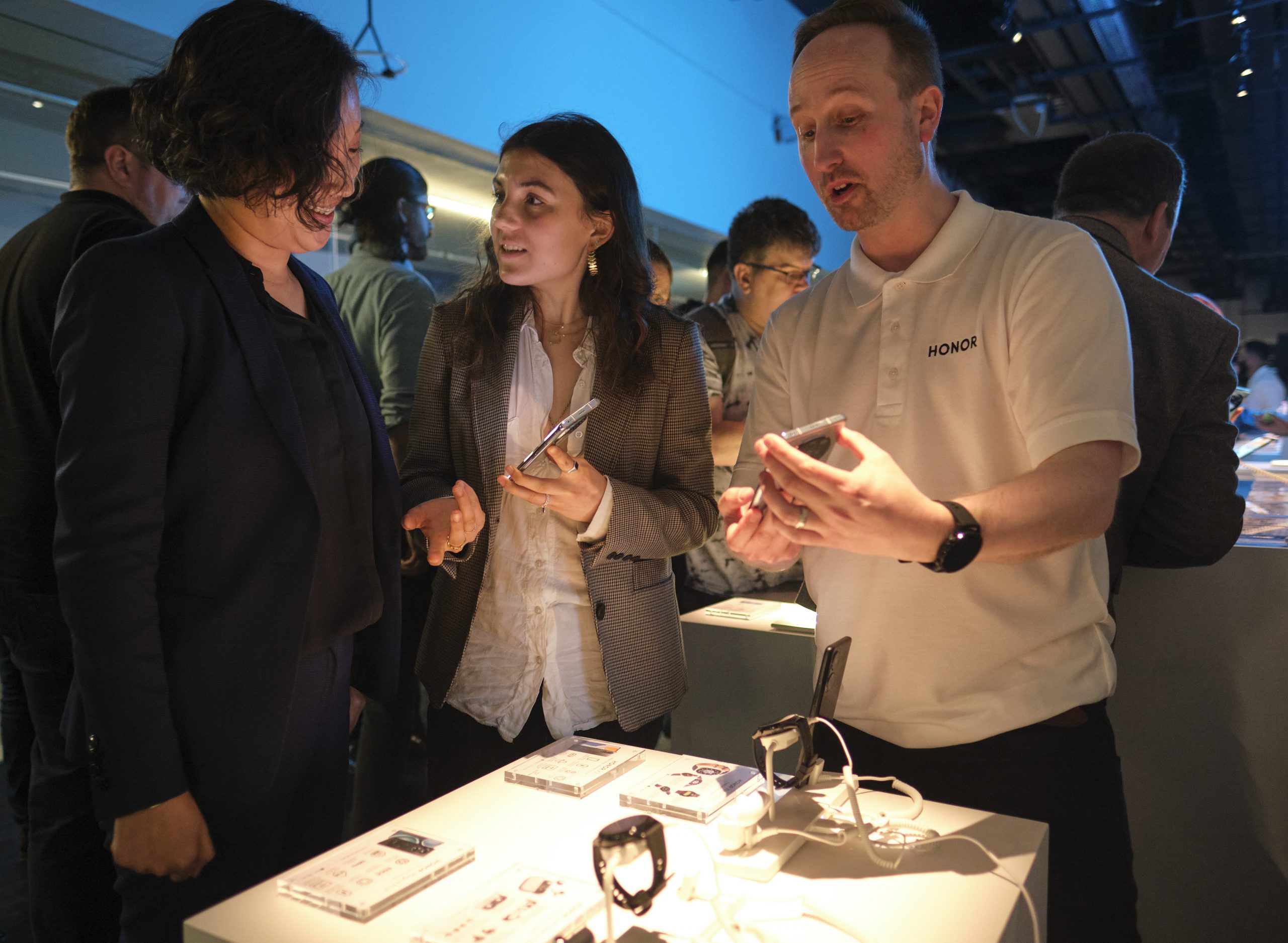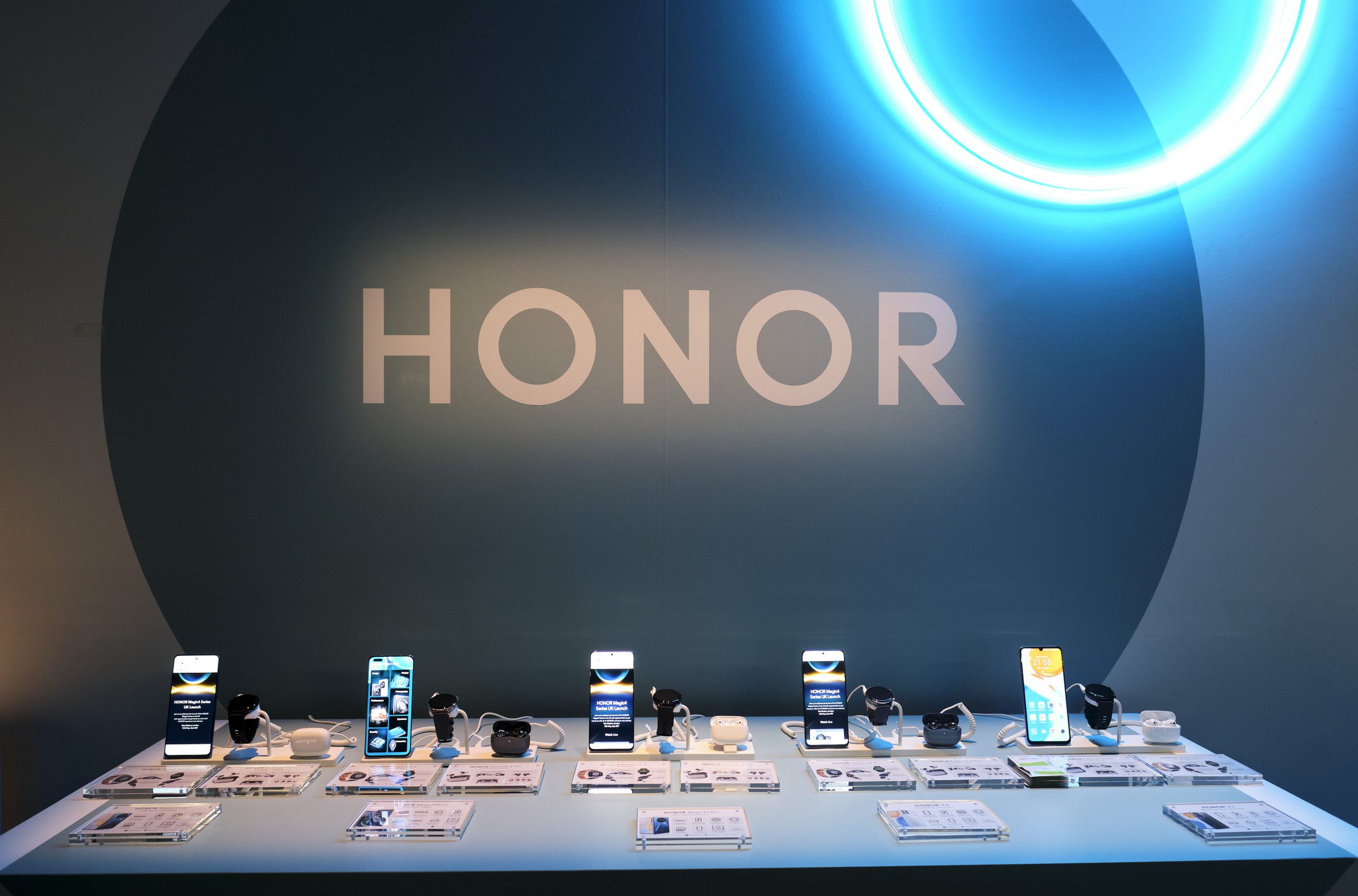

Since separating from parent company Huawei in November 2020, Honor has sought to carve out its own path in the market. With new products like the Magic4 Pro, can it take things to the next level?
Since separating from parent company Huawei in November 2020, Honor has been trying to prove itself as a standalone brand, releasing the likes of the Honor 50, X and Magic4 smartphone series.
First founded in 2013 as a sub-brand to Huawei, Honor phones were marketed to a younger audience and offered a cheaper alternative to its parent’s mid-range devices.
Since being sold to Shenzhen Zhixin New Information Technology in 2020, Honor has expanded from its low-budget origins, as the global launch of the Honor 50 series in November 2021 came with a mid-range price tag.
In addition, the company has launched the Magic4 Pro, a global premium flagship, which it brought to the UK in May.
The Chinese vendor also aims to become known as a reliable technology brand through its products and innovations.
Bond Zhang, country manager for the UK, said the likes of the Magic4 Pro are helping Honor to establish itself internationally.
“We want to make our products available and easy for UK consumers to access, so we currently sell through Three, Vodafone, Currys, Amazon, Argos, John Lewis and Very,” says Zhang.
Zhang’s roles
Zhang has been in his current role since 2017, following more than a decade at Huawei, where he worked across Asia and saw success as the brand expanded to Malaysia, India and Japan by mid-2015.

Honor became number one in China’s smartphone market for the first time in Q1 2022, according to Canalys, shipping 15 million units for a 20 per cent market share.
In the global smartphone market, meanwhile, the vendor saw its shipments grow 148 per cent year-on-year in Q1 2022, according to Counterpoint Research.
This gave Honor a five per cent share of the total market, up three percentage points from a year earlier.
Zhang emphasises that it was a substantial achievement to reach number one in China, believing innovation is a driving force behind the figures.
“Globally, we have 12,000 employees, six research and development centres and over 100 innovation labs to create cutting-edge technologies and IoT capabilities,” he says.
“We adapt and keep up with consumer needs while combining innovative technology to help us be in a good position in the global market.”
Honor’s current market share in the UK is unknown, with Zhang saying the company hasn’t had these figures for a while.
“Market share isn’t our priority at the moment,” he says. “Instead, we want to provide best in-class products, improve brand awareness and grow our list of partners.”
Making waves
For a new smartphone player to make waves in the market, it needs to have the right products, competitive prices and a marketing budget, says CCS Insight chief analyst and CMO Ben Wood.
“In the case of Honor, it clearly has some attractive products which build on its Huawei heritage, and it appears the company is happy to make an investment to try and build share in the UK,” he says.
“Many would say that Apple and Samsung are Honor’s biggest competitors, but my opinion is that Honor is primarily going head-to-head with Oppo and Xiaomi to compete for the ‘third slot’.
“Ultimately, Honor will have to try and displace a rival to get any traction.”
Uswitch broadband and mobile expert Ernest Doku agrees that the competition for Honor comprises the likes of Oppo, Xiaomi and Google, and that the vendor will have to forge its own path to achieve success.
“The UK mobile market is a unique and fiercely brand-loyal sector,” he says. “However, the cost-of-living crisis has seen some consumers make changes in their purchasing decisions.
“There’s every opportunity for Honor, with a strong portfolio of handsets in all segments, sustained marketing efforts, and important network and retailer support, to make headway in a competitive field.”
Honor is in competition with other vendors to replace what Huawei used to be, according to Canalys research analyst Runar Bjorhovde.
“In Q1 2022, Apple and Samsung took over 80 per cent of the UK market combined and the opening for third place requires much lower market share,” he says.
“Oppo, Xiaomi, Motorola, HMD Global, Google and TCL all have between one and five per cent market share, but none of these brands have been able to provide a unique enough proposition to capture third place long-term.”

Marketing push
For Honor to attract UK consumers, Doku believes that it needs to commit to a strong marketing presence and home in on a specific consumer segment.
Zhang acknowledges that Honor needs to increase its brand awareness and has recently worked with the London Film School, where students used the Magic 4 Pro to take pictures and shoot videos.
“We will continue our nationwide campaigning efforts, build an offline and online presence, and continue training our staff, while collaborating with our partners to help improve our branding and awareness in the UK,” he says.
Wood encourages Honor to make its mark on the smartphone industry through spending money on advertising and sponsorship, like Oppo did recently at Wimbledon.
“It took nearly a decade and billions of dollars for Huawei to build its brand, so if Honor is serious, it needs to be in it for the long haul and exceptionally well funded.”
But sponsorship, marketing and advertising are not the only things Honor needs to do to create awareness.
“Rebuilding trust will also be a key aspect for Honor after Huawei has gained a poor reputation over the last two years,” Bjorhovde adds.
“According to Canalys consumer research, trust is among the key drivers for consumers– both in relation to whether people can rely on the hardware and software over time, as well as data protection.”
Paving a path
The downfall of Huawei meant that associated brands were tarred with the same brush by some and had to prove themselves as individual companies.
Honor was one of those brands, but the manufacturer has been gaining international momentum and was regranted access to Google Mobile Services when it launched the Honor 50 series in 2021.
But there is still a long way to go before Honor can see similar success to Huawei and completely rid itself of the association with its former parent company, according to observers.
Bjorhovde says that Honor is facing tougher competition from other Chinese brands than when Huawei entered the market.
“The trick for Honor will be in how it interacts with channel partners,” he says.
“Unique contribution and strong collaborations can be important to understand consumers locally and understand where the challenges lie for those who face consumers directly.”
According to Doku, Huawei’s rise in popularity was driven by the uniqueness of its devices, pricing, specs and marketing spend.
He thinks Honor will need to replicate success in these types of areas to gain more significant traction itself.
“The performance of the Magic4 Pro will be a great leading indicator to see if the fortunes of Huawei can be repeated,” he says. “Convincing consumers to commit to a high-end device is a massive hurdle, so if Honor can clear that hurdle then there’s a greater chance of victory.”
For Zhang’s part, he says he always believed Honor would be able to pave its own way in the market, separately from Huawei.
“I’ve always been confident, even in 2020 when we knew we would be separate,” he says. “Since then, we have formed strong relationships with global industry partners. For example, Honor’s R&D team has worked with the Qualcomm team more closely than ever to unleash the power of its chipset.
“Last year, we mainly focused on the channel market, and within a year we were number one in China.
“Now, we are investing in overseas countries and improving revenue, market share and brand awareness for the premium segment.”

Range Expansion
Zhang wants to expand the vendor’s consumer range, offering products that range from entry to premium level, and bring some leading innovations to the brand.
Tackling all segments of the market can be complicated, but Bjorhovde believes that if the Magic4 Pro really gains a foothold, such success could filter down to other parts of the market for Honor.
“A combined portfolio of devices across the price bands is important, as the marketing of an impressive premium device can result in a stronger performance of cheaper devices,” he says.
“Building into the high end sustainably will take time for Honor, and starting out with a wide portfolio will help it leverage opportunities and maintain strong connections with the channel.”
However, both Doku and Wood think that it’s not always beneficial to target different price segments.
“Having a halo product is always a strong asset – it resonates well with the tech media and helps drive awareness,” said Wood.
“However, Honor may find it has more success being ranged in affordable segments when it comes to driving volume.”
Doku, meanwhile, believes the Magic4 Pro is a capable device, but that Honor’s younger demographic may not follow into the premium segment.
“It’s a matter of being front of mind in a fast-paced and highly competitive market that will make the difference, regardless of the segment they focus on,” he says.
Extra products
Now the Magic4 Pro has been launched across the world, Zhang hopes to also further establish a range of additional products to mobile phones in Honor’s wider ecosystem, and become a leading technology brand in various countries.
So far, Honor has released earbuds, wearable devices and laptops, and Zhang revealed that more work will be put into the smart home, as well as health and fitness products.
Bjorhovde says that it is necessary for a vendor like Honor to provide IoT devices, although this may no longer act as a differentiator in the market. That means other strategies will be needed to achieve that.
“Honor’s IoT products will allow it to open doors into the channel, but building a brand through different marketing channels will be key,” he says.
Meanwhile, Doku says that Honor still needs to carry out a bit of brand education in the mobile space before branching out with other products.
However, he says, the company can achieve success “if the innovation is there and priced in such a way to drive adoption”.
“More efforts in the product and IoT space, continued focus on the European market – where price is the determining factor – and a pipeline of strong devices across all consumer sectors could see Honor become a force to be reckoned with in the next few years.”







